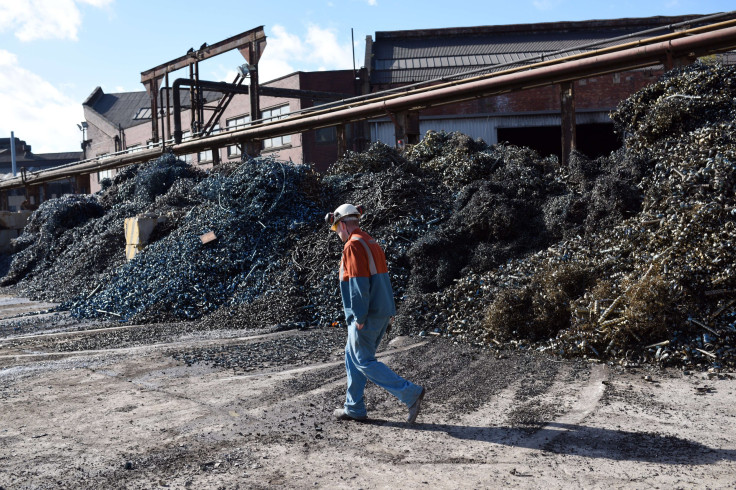After China's 'Black Monday,' British Economy Grows For 10th Consecutive Quarter Amid Uncertainty For Future

The British economy grew for the 10th consecutive quarter, with the gross domestic product (GDP) increasing by 0.7 percent, figures from the Office for National Statistics said Friday. Exports, rising 3.9 percent over the previous three months, helped drive the growth. The figures cover the second quarter, April through June.
Of course, global economic uncertainty followed China's “Black Monday,” when the country's stock market plunged following the devaluation of the yuan currency, and a subsequent 1,000-point drop in the Dow Jones Industrial Average, so those events could have an effect on the British economy in the near future.
Increases in oil and gas production, household consumption and the services sector have all helped to ensure growth in Britain, and government expenditures remained steady for the second quarter, at 0.9 percent.
Low oil and food prices have kept inflation at a low level, giving British citizens room to spend. Household consumption was up 0.7 percent, rising for the 16th consecutive quarter. Output from hotels and restaurants also increased by 1 percent in the second quarter.
While trade has helped the British economy continue its growth, growing by 1 percentage point, it’s unclear if it will remain strong. The strength of the British currency is making the country’s exports more expensive in a time of economic uncertainty stemming from China and lower demand in Asia and other parts of Europe.
The strong economy has edged the Bank of England toward an interest rate increase, as well as a tighter monetary policy. However, market volatility this week has made the timing of any increase uncertain. Speaking to Bloomberg Television, Liz Martins, an economist at HSBC Bank, underscored that economic volatility this week may slightly delay a decision by the Bank of England.
“There’s been some turmoil and from the market perspective, expectations have been pushed back a bit, but I think it’s possible that some of those expectations have been overdone,” Martins said.
A senior economist at Capital Economics told Financial Times that low inflation in Britain and wage growth bode well for the near term. “The economic recovery will sustain its current pace in the second half of 2015,” Samuel Tombs said.
© Copyright IBTimes 2024. All rights reserved.






















